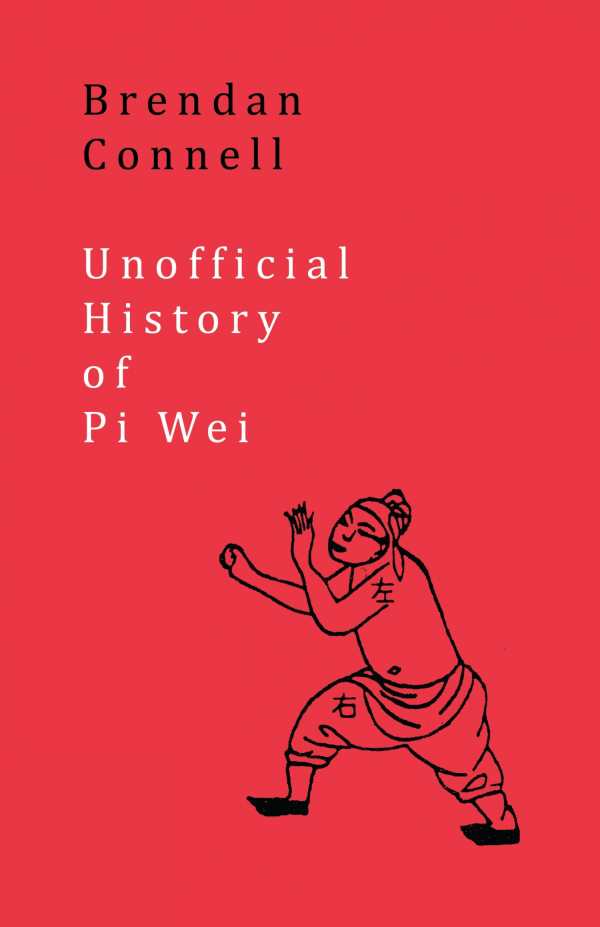Unofficial History of Pi Wei
With Unofficial History of Pi Wei, Brendan Connell challenges the conventions of the classic revenge tale.
In an ancient village, Sung kills Pi Wei’s father, and the boy is then abandoned by his mother. He merely survives until an encounter with Master T’uan. Under his tutelage, Pi Wei grows from a pathetic servant into a formidable foe, ready to seek justice for his father’s death.
At first a familiar justice quest, the novel moves away from traditional narrative forms as it progresses. Elements of other genres play into the narrative as well. Master T’uan is reminiscent of the hermit kung fu master of popular films; though he appears old and weak, he is a skillful fighter, bestowing wisdom. His advice—“practice makes perfect”—becomes ironic at the most tragic moment in the novel.
The dialogue has a cinematic quality and moves the action at a rapid pace. Fantasy elements enhance the novel’s playfulness: money magically returns to its owner from wherever it has been spent, and men fall in love with trees. A tree mourns the death of her lover in a touching lament that borders on mythical. The text combines poetry with prose, with poems appearing regularly and enhancing the book’s atmosphere, though even the general prose has a poetic quality.
Always aware of its style, the story moves beyond what’s expected. Numbered and unnumbered lists, aphorisms, and spacing and fonts that recall electronic messaging all make it more unique. At times, the art of the writing distracts from the story itself, and the book becomes an example of challenging narrative conventions as much as anything else.
Brendan Connell’s novel is entertaining and convention breaking—a fresh take on vengeance stories.
Reviewed by
Geraldine Richards
Disclosure: This article is not an endorsement, but a review. The publisher of this book provided free copies of the book to have their book reviewed by a professional reviewer. No fee was paid by the publisher for this review. Foreword Reviews only recommends books that we love. Foreword Magazine, Inc. is disclosing this in accordance with the Federal Trade Commission’s 16 CFR, Part 255.

